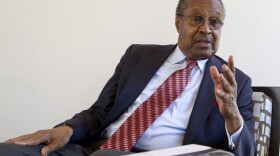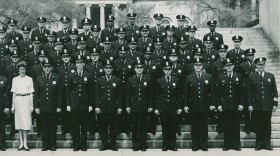Michele Norris
-
Through powerful monologues, Anna Deavere Smith has tackled race riots, integration and health care. In Notes from the Field, she's using her characters to explore the school-to-prison pipeline.
-
The TV show, set in a New York City hospital in the early 1900s, depicts turn-of-the-century medicine in grisly detail. Stars Clive Owen and Andre Holland say there's no nostalgia involved.
-
Filmmaker Lacey Schwartz grew up believing she was white. Her latest documentary, Little White Lie, explores the secret that changed her life.
-
A huge hit upon its release, the 1949 musical South Pacific still resonates with contributors to The Race Card Project — particularly a song about how prejudice is learned, not innate.
-
Clarence Jones played an integral but mostly unseen role in the 1963 March on Washington. As Martin Luther King Jr.'s legal adviser, Jones assisted in drafting King's landmark speech, and drew from a recent event in Birmingham, Ala., to craft one of the speech's signature lines.
-
Joseph Burden and Martin Niverth, officers with the segregated D.C. police department, were both assigned to patrol the March on Washington. Burden, who is black, worked while wishing he could participate. And Niverth, a white man, was surprised to be assigned a black partner for the day.
-
In August 1963, Robert Avery of Gadsden, Ala., was 15 and active in the civil rights movement. He and two friends were bent on participating in the March on Washington, but with little money, they had no choice but to hitchhike — on Southern roads that could be dangerous for segregation opponents.
-
When civil rights worker Jack Hansan traveled to Washington to participate in the march, the fear of violence breaking out was very real. But the father of four knew he had to be there, not just to witness history, but also to play a part in changing it.
-
For the last three years, NPR's Michele Norris has asked people to share their six-word stories about race and cultural identity. The confrontation in Sanford, Fla., has been a running thread in the inbox of the Race Card Project since Trayvon Martin was shot and killed in 2012.
-
On June 11, 1963, Gov. George Wallace stood at the University of Alabama to block two black students attempting to cross the color line and register for classes. The event forever associated him with segregation. His daughter, Peggy Wallace Kennedy, 63, is trying to shake that link.









